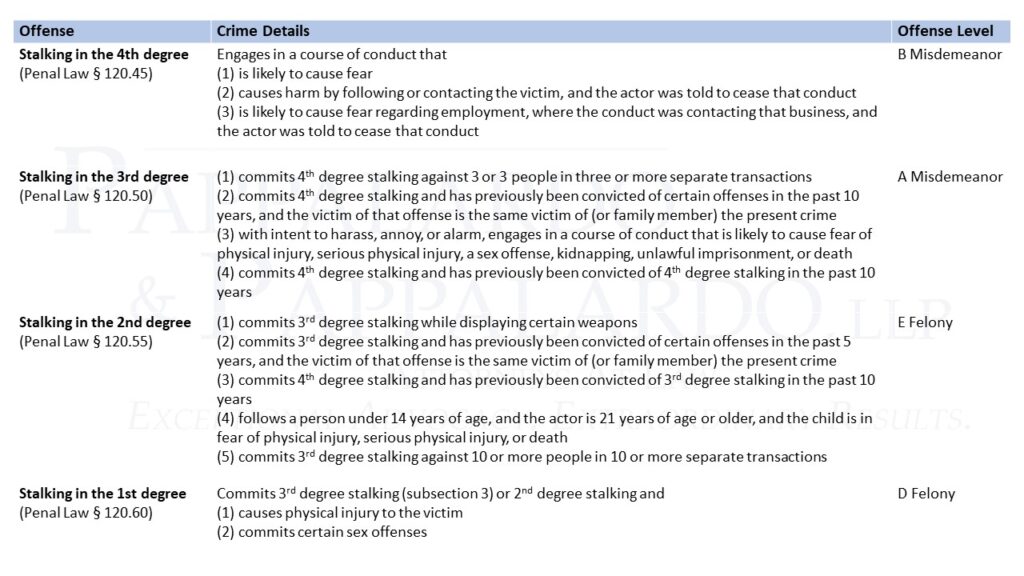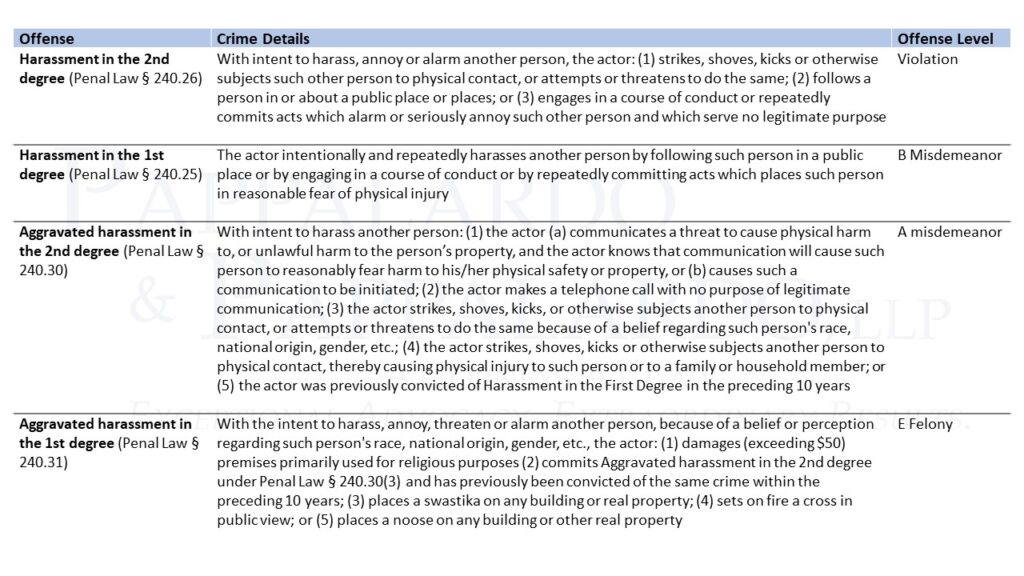Stalking and Harassment Charges in New York: What’s the Difference?
We’ve previously blogged about stalking charges in New York. But what about harassment charges? And what is the difference between these offenses?
Stalking vs. Harassment
Both stalking and harassment make it an offense for a person to interact with another person in ways which are threatening or annoying. In reality, harassment and stalking cover a lot of the same conduct. But the main difference is what the actor in intends to do by his/her actions.
For example, harassment criminalizes following someone with the intent to harass, annoy, or alarm that person. Yet if the actor follows someone for another reason, such as in a broken relationship where they want their ex back, this makes the offense stalking.
Similarly, repeated communications (calls, texts, etc.) can form the basis of a harassment charge if done with the intent to harass, annoy, or alarm the receiving party. But those repeated communications can form the basis of a stalking charge in other circumstances. This may be so in a case where the actor is trying to get the other person’s attention, such as in a romantic relationship.
Punishments for Stalking and Harassment
In general, stalking is treated as being more serious than harassment. New York criminalizes stalking under Penal Law Article 120. Pursuant to these laws, the seriousness of the offense will change based on the number of victims, the details of the behavior by the stalker, whether a weapon was used, and other factors. For stalking, the offense can be either a misdemeanor or a felony.
In comparison, harassment offenses are found in Penal Law Article 240. Again, as with stalking, the seriousness of the offense changes based on various factors. For harassment, this includes the relationship between the parties, whether there is bias, and whether physical contact occurs. While Harassment in the Second Degree is only a violation, Aggravated Harassment in the First Degree is a class E felony.
Note that most of these offenses carry a possibility of a criminal record and a punishment involving incarceration. Additionally, the complaining witness can obtain an Order of Protection for the defendant to stay away and not contact them.
References:
- New York Penal Law, “Article 120: Assault and Related Offenses.” Available at: https://www.nysenate.gov/legislation/laws/PEN/P3THA120 (last accessed June 7, 2022).
- New York Penal Law, “Article 240: Offenses Against Public Order.” Available at: https://www.nysenate.gov/legislation/laws/PEN/P3TNA240 (last accessed June 7, 2022).
- New York Courts, “Frequently Asked Questions: Obtaining an Order of Protection.” Available at: https://www.nycourts.gov/faq/orderofprotection.shtml (last accessed June 7, 2022).
Image: CCO 1.0 Universal (CC0 1.0) Public Domain Dedication



